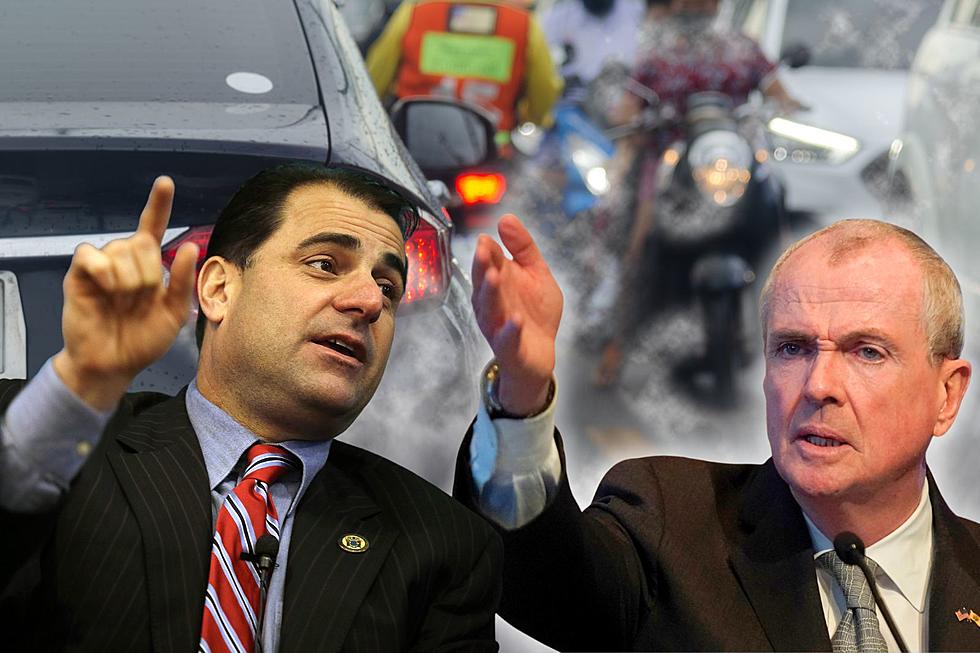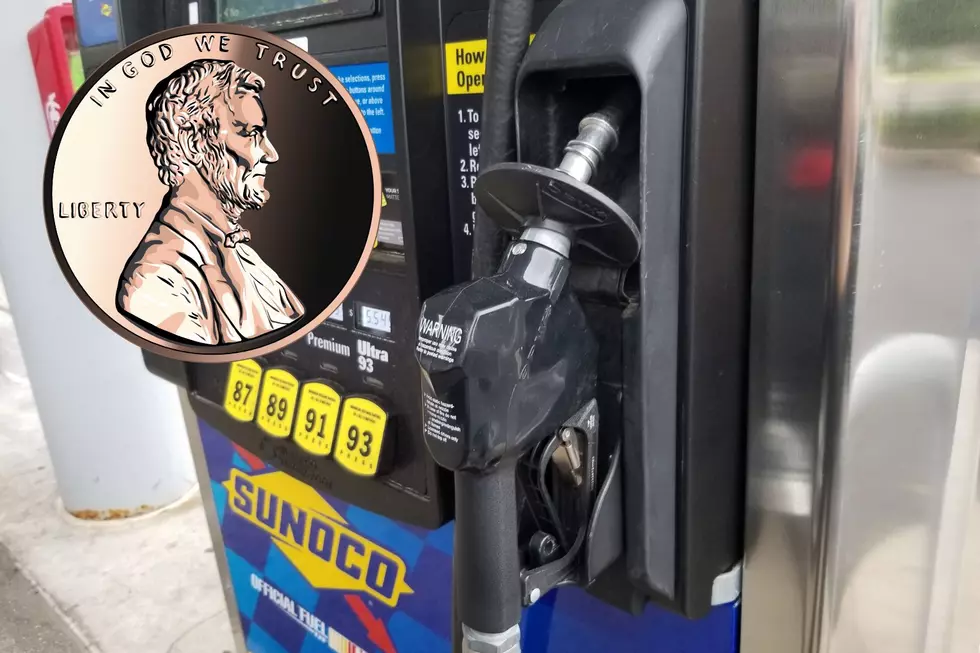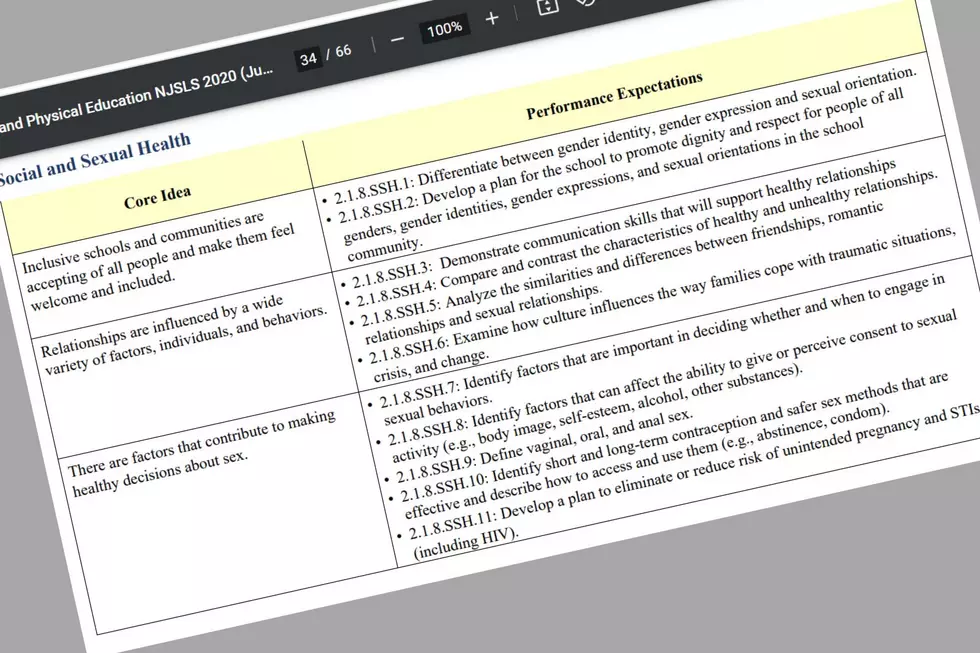
Half of NJ’s new gas tax is being used to pay back old debt. Can state curb trend?
Over the last seven years, more than $99 of every $100 spent on transportation projects by the state Department of Transportation and NJ Transit has been borrowed.
From 2010 to 2016, less than $76 million out of almost $9.4 billion in cash outlays have been from current revenues, according to the Transportation Trust Fund Authority.
The rest has come from borrowing that has contributing to nearly $16 billion in debt. Yearly payments on that debt will be around $1.3 billion through 2029, then more than $1 billion annually for a dozen years after that.
Those bills far exceed the $750 million in annual gas taxes that New Jersey has collected in recent years, which is part of why the state just hiked the tax 22.6 cents a gallon.
Although the gas tax was sold as a way to pay for transportation projects, eleven cents of the tax will go to pay down debt until 2042, says state Sen. Steve Oroho, R-Sussex.
“It’s going to take us a while. I was absolutely shocked when I had seen this. It made me sick," Oroho said.
To cover the TTF’s bills, the state has been transferring over extra sales tax revenues, beyond the $200 million required by the state constitution under a 2000 amendment. This year, it was planning to shift an additional $352 million to the TTF from the general budget, but won’t now that the gas tax went up.
NJ GAS TAX: ALL YOU NEED TO KNOW
• How every state senator voted on gas tax
• How every Assembly member voted on gas tax
• Guadagno to Spadea — ‘A vote for Question 2 is a vote for the gas tax’
• Could this be the NJ gas tax version of ‘Brexit’? Ballot question fuels opposition
• N.J.’s first gas tax hike in 26 years could be followed by another in 2 months
• Think the new gas tax is bad? You should see what it does to diesel
The new TTF plan scales back the reliance on debt, at least as a percentage of the overall program.
Over the next eight years, an average of $500 million a year is to be directly spent on transportation projects – what’s known as pay-as-you-go or pay-go. That would be 25 percent of the planned $2 billion a year program, a share not seen in the state since 2003, and just twice since 1993.
That amounts to about 10 cents a gallon in gas-tax revenues, said Oroho, who described a 25 percent pay-go plan as “quasi-healthy.”
“So people have said to me, ‘Why that 23 cents?’ My first honest answer is because we’ve been irresponsible for so long,” Oroho said.
Gas tax hike
Until last month lawmakers hadn’t raised the gas tax in New Jersey since 1990, when a 4-cent a gallon wholesale tax was added to the 10.5-cent a gallon retail tax. Instead, the state increased borrowing, then used sales tax money to help cover the escalating debts.
“Since 2001, members of both sides of the aisle, including governors, have kicked the can down the road and borrowed and borrowed on the backs of future generations,” said Sen. Paul Sarlo, D-Bergen.
“I think we were irresponsible. I think we were negligent by not funding this Transportation Trust Fund,” said Sen. Kevin O’Toole, R-Essex.
Sen. Gerald Cardinale, R-Bergen, said the Transportation Trust Fund has enabled the irresponsible allocation of public funds and that lawmakers are making the same mistake now as was made in 1984.
“After 30 years, where are we?” said Cardinale, a senator since 1982. “We could have speculated in ’84, but now we know where we are. Where we are is our infrastructure is in very sad shape, and it’s a little more complicated today than it was then because we have a huge overhanging debt.”
Lawmakers will need to address the TTF again in eight years, Cardinale said.
“We are going to be back here again with an even more enormous debt,” Cardinale said.
The $16 billion in TTF debts amount to 38 percent of New Jersey’s total $43 billion in bonded debt. Another $12 billion in borrowing is planned over the next eight years, using the new gas-tax money as collateral.
Ballot question
If voters reject a ballot question dedicating all gas-tax revenues to transportation next week, the Transportation Trust Fund legislation will have to be revisited. But the gas tax hike itself, which took effect Tuesday, wouldn’t be reversed. Opponents hope that if the bond sale is scuttled, the whole plan will return to the drawing board.
Voters must approve the dedicated funding source under a constitutional amendment approved by voters in 2008. Its author, now U.S. Rep. Leonard Lance, R-N.J. 7th, who at the time was state Senate minority leader, said the ballot question fits the goal of his amendment, even though it doesn’t directly ask voters whether they approve borrowing $12 billion.
Nevertheless, Lance said he’s probably going to vote against the ballot question.
“I am reviewing it, but I’m likely to vote against it,” said Lance, who opposes the gas-tax hike and supports its repeal. "I would like to see it renegotiated. I don’t know whether that’s possible or not.”
That seems unlikely. If the ballot question is defeated, state officials indicate they may seek to borrow against already dedicated sales tax revenues instead.
“This existing constitutional dedication permits the state Legislature the ability to authorize bonding authority without additional voter approval, provided that the source of repayment of these subject-to-appropriation bonds are constitutionally dedicated revenues,” Department of the Treasury spokesman Willem Rijksen said.
That borrowing could potentially exceed $12 billion, he said.
To fund transportation projects in 2017 and 2018, the state is currently selling $2.77 billion in bonds borrowed against future federal funds and taking out a $500 million loan from Bank of America. That borrowing would not count toward the $12 billion in additional debt authorized by the new TTF law.
New Jersey: Decoded cuts through the cruft and gets to what matters in New Jersey news and politics. Follow on Facebook and Twitter.
Michael Symons is State House bureau chief for New Jersey 101.5 and the editor of New Jersey: Decoded. Follow @NJDecoded on Twitter and Facebook. Contact him at michael.symons@townsquaremedia.com
More From New Jersey 101.5 FM









